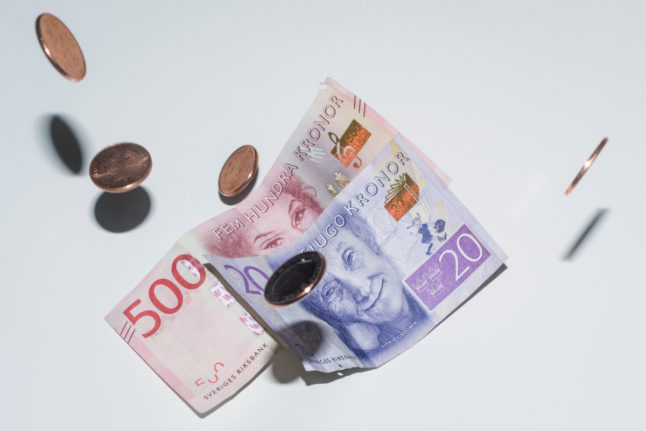February 1st: Interest rate announcement
Sweden’s Riksbank will announce its next decision on the interest rate on February 1st. Experts are divided on whether it will raise the rate, leave it unchanged or lower it, with most currently leaning towards the latter two options. The interest rate was left unchanged at 4 percent in November.
February 3rd: Mello
Melodifestivalen, Sweden’s Eurovision trials which are affectionately referred to as “Mello”, will kick off on February 3rd for five weeks of music, entertainment and fun – or a lifetime of earworms and wondering why you ever moved to Sweden.
You can watch it live on Saturday nights at 8pm on SVT1 or stream on SVT Play, or listen to Sveriges Radio P4.
If you’re really keen, tickets for the arena shows, which are spread up and down the country, are also available, with both matinee and evening rehearsal tickets, as well as live show tickets, on offer.
You can also join in the fun by downloading the Melodifestivalen app, which will allow you to vote for your favourite songs absolutely free.
Whether you watch it or not, make sure to check in with the results and the songs before you return to work, because if there is one thing you can be sure of, it’s that the conversation topic of the day will be if the right songs won or not.
February 13th: Fettisdagen
Although you’re likely to spot the cream and marzipan filled buns known as semlor in bakeries from the end of Christmas to the start of Easter, they are traditionally eaten on Shrove Tuesday or Fettisdagen, as the last festive food before Lent, a traditional fasting period leading up to Easter. Fettisdagen falls on February 13th this year, so you can expect to indulge in one of the year’s best treats this month.
Here’s our guide to what you should look for in a good semla.
February 14th: Alla hjärtans dag
Valentine’s Day, or Alla hjärtans dag (“All hearts’ day”), falls on February 14th. Valentine’s Day is a relatively recent import to Sweden so it’s not always celebrated among couples, but make sure to check with your partner before you forego a card this year.
If you’re single and looking to find yourself a Swede, look no further – here are some of The Local’s guides from our archives to help you out:
- So when is a fika a fika… and when is it a date?
- Ten unique words you need to date in Sweden
- Five reasons to date a Swede (and five reasons not to)
February 20th: Annual book sale
Sweden’s annual book sale, when bookshops across the country sell books at reduced prices, will get under way on February 20th, so if there’s a book you’ve had your eye on but haven’t quite got around to buying yet, it might be worth waiting for a good deal.
Here’s a list of book recommendations from The Local’s archive.
Late February-early March
The pensions agency starts sending out pension statements in January, with most people receiving them in February or March. You don’t need to do anything in response to them – it’s just a statement to keep you up to date – but if you want to plan your pension, there are a few tricks.
School holiday dates for February
February school holiday dates or sportlov in Sweden vary depending on where in the country you live, but will consist of one week between week 7 and 11 (February 12th-March 15th).
Here are the dates for 2024 in some of Sweden’s major cities:
- Gothenburg: Week 7 (February 12th-16th)
- Malmö: Week 8 (February 19th-23rd)
- Stockholm: Week 9: (February 26th-March 1st)



 Please whitelist us to continue reading.
Please whitelist us to continue reading.
Member comments